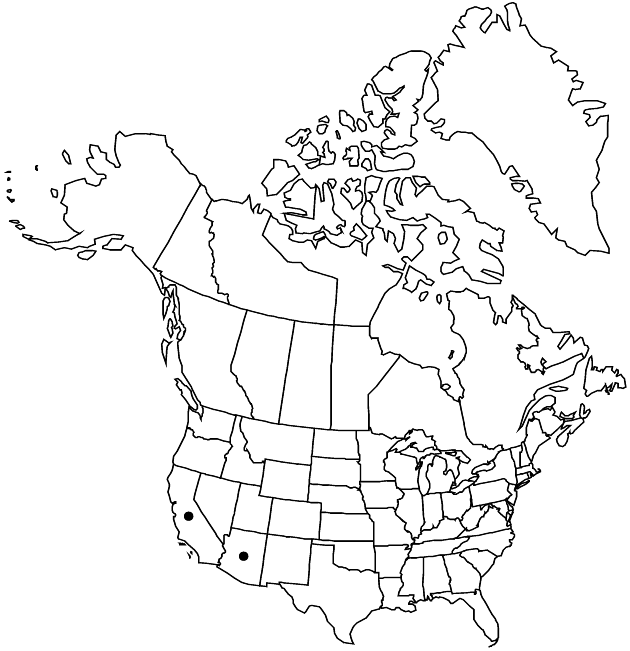Difference between revisions of "Deinandra kelloggii"
Fl. Francisc. 4: 424. 1897.
FNA>Volume Importer |
imported>Volume Importer |
||
| (6 intermediate revisions by 2 users not shown) | |||
| Line 7: | Line 7: | ||
|year=1897 | |year=1897 | ||
}} | }} | ||
| − | |basionyms={{Treatment/ID/ | + | |basionyms={{Treatment/ID/Basionym |
|name=Hemizonia kelloggii | |name=Hemizonia kelloggii | ||
|authority=Greene | |authority=Greene | ||
| + | |rank=species | ||
| + | |publication_title=Bull. Torrey Bot. Club | ||
| + | |publication_place=10: 41. 1883 | ||
}} | }} | ||
|synonyms= | |synonyms= | ||
| Line 19: | Line 22: | ||
}}<!-- | }}<!-- | ||
| − | --><span class="statement" id="st-undefined" data-properties=""><b>Annuals,</b> 10–100(–150) cm. <b>Stems</b> ± solid. <b>Leaves</b>: proximal blades usually pinnatifid to toothed (rarely entire), faces hispid to hirsute and sometimes stipitate-glandular. <b>Heads</b> in open, paniculiform arrays. <b>Bracts</b> subtending heads usually not overlapping involucres. <b>Phyllaries</b> ± evenly stipitate-glandular, including margins and apices, with or without non-glandular, non-pustule-based hairs. <b>Paleae</b> in 1 series. <b>Ray</b> florets 5; laminae deep yellow, 4–8 mm. <b>Disc</b> florets 6, all or mostly functionally staminate; anthers usually yellow or brownish (reddish to dark purple or maroon in some, mostly southern Californian, D. kelloggii). <b>Pappi</b> of 6–12 linear to oblong, entire or fringed scales 1–2 mm. <b>2n</b> = 18.</span><!-- | + | --><span class="statement" id="st-undefined" data-properties=""><b>Annuals,</b> 10–100(–150) cm. <b>Stems</b> ± solid. <b>Leaves</b>: proximal blades usually pinnatifid to toothed (rarely entire), faces hispid to hirsute and sometimes stipitate-glandular. <b>Heads</b> in open, paniculiform arrays. <b>Bracts</b> subtending heads usually not overlapping involucres. <b>Phyllaries</b> ± evenly stipitate-glandular, including margins and apices, with or without non-glandular, non-pustule-based hairs. <b>Paleae</b> in 1 series. <b>Ray</b> florets 5; laminae deep yellow, 4–8 mm. <b>Disc</b> florets 6, all or mostly functionally staminate; anthers usually yellow or brownish (reddish to dark purple or maroon in some, mostly southern Californian, <i>D. kelloggii</i>). <b>Pappi</b> of 6–12 linear to oblong, entire or fringed scales 1–2 mm. <b>2n</b> = 18.</span><!-- |
-->{{Treatment/Body | -->{{Treatment/Body | ||
| Line 26: | Line 29: | ||
|elevation=0–900(–1200) m | |elevation=0–900(–1200) m | ||
|distribution=Ariz.;Calif.;Mexico (Baja California). | |distribution=Ariz.;Calif.;Mexico (Baja California). | ||
| − | |discussion=<p>Deinandra kelloggii occurs in the San Joaquin Valley, eastern San Francisco Bay area, eastern Inner South Coast Ranges, and south-central Sierra Nevada foothills and in mostly interior, southwestern California. Plants in the Mojave and Sonoran deserts and Inner North Coast Ranges are presumably introductions. Plants morphologically intermediate between D. kelloggii and D. pallida (e.g., 5–7 ray florets) have been collected where ranges of the two, somewhat interfertile species meet near Porterville (e.g., D. D. Keck 3335, UC; L. L. Donnelly 29, UC).</p> | + | |discussion=<p><i>Deinandra kelloggii</i> occurs in the San Joaquin Valley, eastern San Francisco Bay area, eastern Inner South Coast Ranges, and south-central Sierra <i>Nevada</i> foothills and in mostly interior, southwestern California. Plants in the Mojave and Sonoran deserts and Inner North Coast Ranges are presumably introductions. Plants morphologically intermediate between <i>D. kelloggii</i> and <i>D. pallida</i> (e.g., 5–7 ray florets) have been collected where ranges of the two, somewhat interfertile species meet near Porterville (e.g., D. D. Keck 3335, UC; L. L. Donnelly 29, UC).</p> |
|tables= | |tables= | ||
|references= | |references= | ||
| Line 35: | Line 38: | ||
-->{{#Taxon: | -->{{#Taxon: | ||
name=Deinandra kelloggii | name=Deinandra kelloggii | ||
| − | |||
|authority=(Greene) Greene | |authority=(Greene) Greene | ||
|rank=species | |rank=species | ||
| Line 50: | Line 52: | ||
|publication year=1897 | |publication year=1897 | ||
|special status= | |special status= | ||
| − | |source xml=https:// | + | |source xml=https://bitbucket.org/aafc-mbb/fna-data-curation/src/2e0870ddd59836b60bcf96646a41e87ea5a5943a/coarse_grained_fna_xml/V19-20-21/V21_699.xml |
|tribe=Asteraceae tribe Heliantheae | |tribe=Asteraceae tribe Heliantheae | ||
|subtribe=Asteraceae (tribe Heliantheae) subtribe Madiinae | |subtribe=Asteraceae (tribe Heliantheae) subtribe Madiinae | ||
Latest revision as of 20:13, 5 November 2020
Annuals, 10–100(–150) cm. Stems ± solid. Leaves: proximal blades usually pinnatifid to toothed (rarely entire), faces hispid to hirsute and sometimes stipitate-glandular. Heads in open, paniculiform arrays. Bracts subtending heads usually not overlapping involucres. Phyllaries ± evenly stipitate-glandular, including margins and apices, with or without non-glandular, non-pustule-based hairs. Paleae in 1 series. Ray florets 5; laminae deep yellow, 4–8 mm. Disc florets 6, all or mostly functionally staminate; anthers usually yellow or brownish (reddish to dark purple or maroon in some, mostly southern Californian, D. kelloggii). Pappi of 6–12 linear to oblong, entire or fringed scales 1–2 mm. 2n = 18.
Phenology: Flowering Mar–Nov.
Habitat: Grasslands, openings in woodlands or shrublands, barrens, disturbed sites, sandy or clayey soils
Elevation: 0–900(–1200) m
Distribution

Ariz., Calif., Mexico (Baja California).
Discussion
Deinandra kelloggii occurs in the San Joaquin Valley, eastern San Francisco Bay area, eastern Inner South Coast Ranges, and south-central Sierra Nevada foothills and in mostly interior, southwestern California. Plants in the Mojave and Sonoran deserts and Inner North Coast Ranges are presumably introductions. Plants morphologically intermediate between D. kelloggii and D. pallida (e.g., 5–7 ray florets) have been collected where ranges of the two, somewhat interfertile species meet near Porterville (e.g., D. D. Keck 3335, UC; L. L. Donnelly 29, UC).
Selected References
None.